April 5, 2021
Every Child Can Be A Leader
by Craig Lamshed, Founding Principal, Royal Grammar School Guildford Dubai
When we talk about being a great leader within the school community, we are not just talking about the named positions such as Head Boy or Head Girl, or captain of a sports team. We believe that every child has the potential to become a great leader if they are taught the right skills and that a leader is an individual who has real integrity. They are an individual that truly understands themselves, knows where they want to go, and wants to inspire people to join them on a journey for good.
Over the past ten years, the Royal Grammar School Guildford in the UK has been working on creating a leadership programme that is rooted in the psychology of leadership. The programme’s learning principals are Organisation, Engagement, Imagination, Perseverance, Aspiration and Reflection, and will be woven into everything the school teaches at the Dubai campus when it opens in September. Aside from the clear value of academic learning, RGS believes and knows that true success in life depends on so much more. Many global thinkers and influential organisations around the world point to the importance of educating young people to ‘think big’, to develop an understanding of the significant challenges in the world and to use their education to support positive change. This belief is the true essence of RGS Guildford Dubai’s leadership programme, Riyada.
Meaning ‘leadership’ in Arabic, Riyada is at the heart of RGS Guildford Dubai’s curriculum. Starting with Early Years in FS1 and FS2, we teach pupils how to recognise, understand and control their own emotions. We empower them by giving them a tool kit which they can use to help manage their own emotions. For example, if they feel irritated they have to choose their reactions from the tool kit we have given them which include; taking time out, using mindfulness to calm down, shouting loudly, talking to a best friend or confiding in their parents. Teaching children to be reflective, to recognise their emotions and giving them the power to manage these through appropriate choices, helps a child feel in control, and in turn develops a confident and competent young person.
As children progress through the school’s year groups, their leadership development and learning grow too. In Years 1 and 2, children are taught to read people’s facial expressions, read body language and understand tone of voice. They learn about being role models, what it means to be kind, and what a team player looks and sounds like. Pupils in Year 3 and Year 4 learn about different leadership styles across the world and how having different leadership styles is important. Pupils do this through resolving problems in the playground, showing leadership in class projects or showing leadership in the school council. The older year groups then take their learnings from the school setting out into the community, and even internationally through charity work and helping community causes.
Teaching children about leadership in this way is hugely beneficial as it results in confident children who understand themselves, and in turn, learn how they can use their education and skills to help others. We believe that being a great leader is about having complete integrity and as a result, having a clear vision of where you personally want to go and how you want to get there, and a willingness to take people with you on your journey. Leadership is not just about career development or a title. A successful leader is one that actively serves the people they lead, getting to know them and understanding what they need to help them grow, rather than just telling them what to do.
Great examples of leadership within the school community can take place in all shapes and forms. A pupil from RGS Guildford decided to support his friend who was diagnosed with cancer by taking part in a charity campaign he called, ‘Brave the Shave’. He presented the idea to his peers at school and asked them for support as he needed help with marketing and writing a blog. The project culminated in the group arranging a press conference at the school to raise awareness about the cause and to raise funds for a cancer charity. Through this project, the pupil showed true leadership through a selfless act which was purely to help someone else, whilst engaging with his peers for support. Other pupils at RGS continue to take part in activities such as campaigning programmes, school assembly, organising petitions and young enterprise schemes.
After guiding many pupils on their leadership journeys, I truly believe that leadership is rooted in self-reflection, understanding and development. Once pupils have grasped this, they can then go on to finding ways to help and better the people around them, whether that’s through friendship groups, family, or the wider community. Every child can learn to be a leader if we teach them the skills and learning habits to do so.[/vc_news_content]
